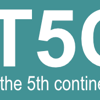Python's strength lies not only in its simplicity and readability but also in its extensive collection of libraries that cater to various domains and tasks. These libraries, created and maintained by the Python community, serve as invaluable tools for developers, enabling them to streamline their workflows, solve complex problems, and build sophisticated applications efficiently. In this blog post, we'll embark on a journey to explore the world of Python libraries and discover how they can elevate your coding experience to new heights.
1. The Power of Python Libraries
Python libraries are pre-written packages of code that provide ready-to-use functions, classes, and modules, saving developers time and effort. They cover a vast range of applications, from data manipulation and scientific computing to web development and machine learning. Let's dive into some of the most popular libraries and their applications.
2. Essential Libraries for Data Manipulation and Analysis
NumPy: A fundamental library for numerical computations, providing support for arrays and matrices along with mathematical functions.
pandas: The go-to library for data manipulation and analysis, offering data structures like DataFrames for easy data handling.
matplotlib and Seaborn: Tools for creating captivating visualizations and plots from your data.
3. Simplifying Machine Learning with scikit-learn
scikit-learn: A user-friendly machine learning library that offers a wide range of algorithms for classification, regression, clustering, and more.
TensorFlow and PyTorch: Deep learning libraries that enable the creation and training of neural networks for advanced machine learning tasks.
4. Web Development Made Easy with Django and Flask
Django: A high-level web framework that promotes rapid development and clean, maintainable code.
Flask: A lightweight and flexible micro-framework for building web applications and APIs.
5. Enhancing Data Visualization with Plotly and Bokeh
Plotly: An interactive graphing library for creating dynamic, interactive visualizations in Python.
Bokeh: A library that enables the creation of aesthetically pleasing and interactive visualizations for the web.
6. Scientific Computing with SciPy
- SciPy: Built on top of NumPy, this library provides additional functionality for scientific computing, including optimization, signal processing, and more.
7. Interacting with Databases Using SQLAlchemy
- SQLAlchemy: A powerful library that facilitates database interactions and object-relational mapping (ORM) in Python.
8. Automating Tasks with Requests and Beautiful Soup
Requests: A library for making HTTP requests and handling responses, ideal for web scraping and interacting with APIs.
Beautiful Soup: A tool for parsing HTML and XML documents, making web scraping a breeze.
9. Exploring Natural Language Processing (NLP) with NLTK and spaCy
NLTK: Natural Language Toolkit, a library for NLP tasks like text processing, tokenization, and more.
spaCy: A fast and efficient NLP library designed for production use, featuring pre-trained models for various languages.
10. Game Development with Pygame
- Pygame: A library for creating 2D games in Python, offering functions for graphics, sound, and input handling.
Embracing the Richness of Python Libraries
Python's vast library ecosystem empowers developers to harness the full potential of their code and create solutions that would have been time-consuming or even impossible to build from scratch. By incorporating these libraries into your projects, you can accelerate development, focus on higher-level problem-solving, and innovate in various domains. Whether you're a data scientist, a web developer, or an AI enthusiast, Python libraries open doors to creativity, efficiency, and excellence in your coding journey. So, start exploring, experimenting, and incorporating these libraries to embark on a path of limitless possibilities.







Top comments (0)